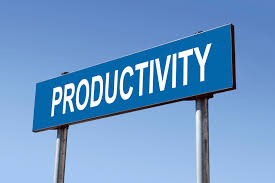“We are what we repeatedly do. Excellence, then, is not an act but a habit” Aristotle
Habits are certain embedded patterns of thought or action. Something we replay over and again automatically. They can be conscious or unconscious actions. Procrastination is a particular habit of mine. It took me ages to get my act together to write this blog post today..!
The advertising industry has long understood how to introduce consumption of products to us via Inculcation – repeated messaging until our subconscious demands we buy anything and everything with Peppa Pig splattered on it – seriously, watch the trance kids go into anytime the famous pig is on TV and the consequent “must buy impulse” triggered when they see related merchandise. For my own part I have managed to make cycling, herbal tea and yoga regular habits. But I’ve also started cracking my knuckles and still get the odd chocolate bar in. Maybe every time we succeed in introducing a positive change we also get a corresponding negative habit to balance things out..?
Established Patterns
“Bad habits are like a comfortable bed, easy to get into but hard to get out of” Anon
Changing or breaking any habit needs to begin with awareness and identifying these repeated patterns or routines that exist. This can be trickier than it sounds as our ego does its utmost to reject that smoking twenty cigarettes per day is actually an entrenched pattern resulting in self deluded commentary such as “Oh smoking? No that’s not a serious habit for me. Honestly I could give that up easily. No, I need to focus on my habit of never calling people back, it’s terrible.” These are deeply entrenched and defensive positions – it’s taken potentially hundreds, thousands of repetitions to establish the current habit – where we fear being exposed, losing our not so secret crutch and dread our world changing forever. Change however, is the only constant.
Going to the gym regularly, meditating for 15 minutes in the morning…. are all habits too. It’s just that they result in positive and societally approved change. Which is why we desire them but they take commitment and hard work so just one more pint and fag and I’ll catch you up on that hill run..promise..!
Charles Duhigg’s illuminating book How Habits Work http://charlesduhigg.com/how-habits-work/ cites the trigger, routine, reward loop which goes a bit like this:
1. Trigger that kicks things off
2. Routine ie. the habit/behaviour itself
3. Benefit received from the action/behaviour
Changing Behaviours
As this is the way in which habits bcome cemented within us, it is also the way to establish new behaviours. So if the sight of a Crunchie wrapper near a waste bin in the street means we have to get that sugar hit NOW as an immediate Pavlovian response is activated, then similarly we need to consciously introduce different visual triggers into our world – a bowl of cashews next to the fridge, satsumas next to the pc, gym kit ready and waiting next to the door etc. if we are to ever change our ways.
As is well documented sheer willpower alone doesn’t work for most of us. We are magnetically pulled back into our well practiced old behaviours unless we go out of our way to create systems that actively promote the new way of doing things. A self created advertising campaign aimed at just ourselves.
Coaching as a Solution
“All bad habits start slowly and gradually and before you know you have the habit, the habit has you” – Zig Zaglar
Working with a trusted coach can help to identify existing habits, clarify new goals, work out the road map to achieving those goals and crucially provide ongoing support and guidance. Is it any surprise then, that most successful people and many of those in positions of leadership use executive coaches to help them in reaching their goals? Not really.
Sartaj Garewal is the founder of Dynamic Presenting – a creative, leadership development consultancy, adapting theatre training to create leadership programs for business.
Dynamic Presenting – Enabling Powerful Communication






